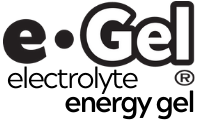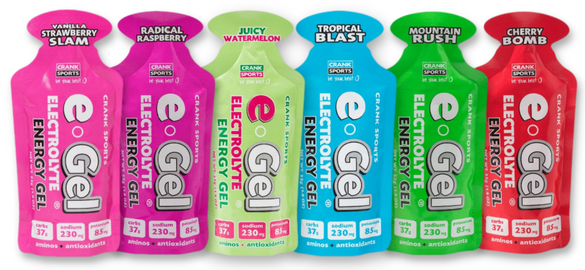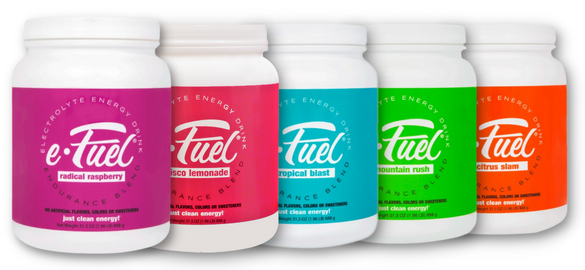The Ketone Myth, Busted!
The Ketone Myth, Busted!
The much hyped "super fuel" is even worse than we imagined
If you’re an endurance athlete and spend any time on social media, you’ve no doubt been flooded with ketone ads from paid influencers. A super fuel that gives you 15% more power sounds too good to be true, and it turns out that it is. An independent clinical trail (published July 2023) has found that they don’t work, but even worse, ketone supplements NEGATIVELY impact performance. Read that again.
the proof
Kinesiologists at McMaster University recruited well-trained endurance athletes who cycled five or more hours per week, selecting them because their athletic performance is consistent from day to day.
Each participant completed two trials that differed only in the drink provided before they completed a 20-minute cycling time trial that closely predicts 40-km race performance. The drinks contained either a ketone supplement or a similar-tasting placebo.
For male participants, the two experimental trials were separated by 7 days and performed at the same time of day (±1 hr). For female participants, the two experimental trials were performed in the same phase of their hormonal cycle. The day before and morning of the trials, participants were instructed to eat and drink how they would normally prepare for a race. The intent was for the pattern of nutrition intake to be matched as precisely as possible between trials.
The research was structured as a tripple-blind study, meaning that the experimenters, athletes and researchers analyzing the data did not know whether the ketone supplement or the placebo was provided.
athletes were slower when using ketones versus the placebo
Despite all the hype and false promises of ketones, athletes were actually slower and performed worse when using ketones as can also be verified by their power output.
power output was 6.2 watts lower when using ketones versus the placebo
Power output ranged from 1.7 to 10.2 watts lower when using keytones with the mean being 6.2 watts lower.
blood glucose was 9.6% lower when using ketones versus the placebo
This finding from the study was most concerning to us. Whether you use ketones or not, glucose is the primary fuel source for your muscles. When athletes used ketones the blood glucose dropped significantly, which would explain the decreased ability to generate power.
peak heart rate and perceived exertion were the same with both ketones and the placebo
If all that wasn’t bad enough, athletes felt like they were working just as hard when using ketones even though they were slower and generating less power.
In our 20 years of studying endurance sports nutrition, this is one of the most well formulated clinical trials that we have seen, and one of the most conclusive as well. The study was published in the International Journal of Sport Nutrition and Exercise Metabolism in July 2023, and was funded by a Discovery Operating Grant from the Natural Sciences and Engineering Research Council (NSERC). Link to full study
our suggestion
Save your money and perform better the proven way – use good products that provide a blend of carbohydrates and electrolytes that work best for you. We make what we feel are the best energy gels (e-Gel) and hydration drinks (e-Fuel) on the market, but there are plenty of good products. Everyone needs to find out what works best for their own body.
Virtually all sports drinks are loaded with sugar and they shouldn’t be! Whether you decide to use e-Fuel or not, let us show you how complex carbs are the key to improving your performance.
e-Fuel is loaded with complex carbs, low in sugar and provides balanced electrolyte replacement to maintain hydration and help avoid cramping and injuries. e-Fuel also has NO artificial flavors, colors or sweeteners – it’s Just Clean Energy!
if you found this useful please share!
related resources
gels, drinks, chews ... what's best for your sport?
Use our Sherpa Nutrition Guide tool to get your nutrition dialed in. Just plug in your sport, problems you’re having (cramping, stomach issues, running out of energy) and Sherpa will give you a detailed person guide. Free, quick and easy!
fat and protein during your race, don't do it!
In order to achieve optimum performance in any endurance sport you need to maximize oxygen delivery to the working muscles. What you eat plays a significant role.
fructose, you need some!
Fructose often gets a bad rap, but using it properly will actually give you an advantage, learn how.
why protein should NOT be in your sports drink
what about magnesium, calcium and other electrolytes?
e-Fuel. and e-Gel have the electrolytes sodium and potassium, but not magnesium, calcium and others. Read why
when to use sports drinks and energy gels and can they be used together
If you decide to use e-Gel and e-Fuel together (or any energy gel and sports drink), follow these guidelines for best results.
sports drinks: sugars vs complex carbs
how to mix e-Fuel
e-Fuel is designed to be a rapid mix powder that will fully dissolve, but here’s some tips to help make sure it mixes quick and easy with no clumping!
the marathon wall and how to avoid it
The bad news is that “the wall” is a very real thing. The good news is that you can avoid “hitting the wall” if you follow this advice.





